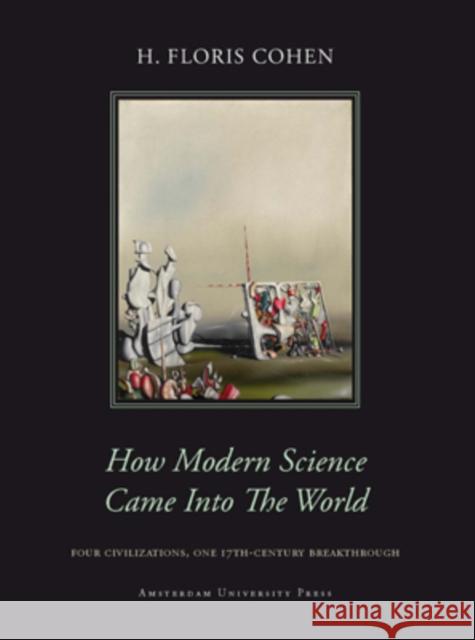How Modern Science Came Into the World: Four Civilizations, One 17th-Century Breakthrough » książka
How Modern Science Came Into the World: Four Civilizations, One 17th-Century Breakthrough
ISBN-13: 9789089642394 / Angielski / Twarda / 2012 / 832 str.
How Modern Science Came Into the World: Four Civilizations, One 17th-Century Breakthrough
ISBN-13: 9789089642394 / Angielski / Twarda / 2012 / 832 str.
(netto: 836,19 VAT: 5%)
Najniższa cena z 30 dni: 795,38
ok. 16-18 dni roboczych.
Darmowa dostawa!
Once, the concept of 'the Scientific Revolution of the 17th century' was innovative and inspiring, yielding what is still the master narrative of the rise of modern science. That narrative, however, has turned into a straitjacket--so often events and contexts just fail to fit in. Even so, in Floris Cohen's view neither the early, theory-centered historiography nor present-day contextual and practice-oriented approaches compel us to drop the concept altogether. Instead, he offers here a narrative restructured from the ground up, by means of a comprehensive approach, sustained comparisons, and a tenacious search for underlying patterns. Key to his analysis is a vision of the Scientific Revolution as made up of six distinct, yet tightly interconnected revolutionary transformations, each of some twenty-five-to-thirty years' duration. This vision enables him to explain how modern science could come about in Europe rather than in Greece, China, or the Islamic world.'











